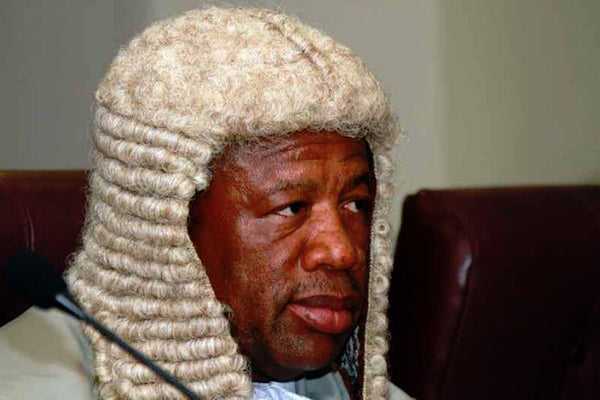Justice Lot Moroka comes under severe criticism in CoA judgement
A judge does not, under the guise of a judgement, “write an essay on legal issues of his concern not arising from the issues before him, no matter how erudite his opinion may, ex facie, appear”. This is the brutal conclusion of a panel of three Court of Appeal Judges as it punched holes into a judgement by Francistown High Court Judge Lot Moroka that a breathalyser machine used by police has not been prescribed by the Minister.
Justice Moroka had drawn this conclusion in an appeal by Freeman Mapukule who was convicted and sentenced by Selibe Phikwe Magistrate court in February 2018 on two counts of failure to provide sufficient breath specimen and driving a motor vehicle without due care and attention. This was after Mapukule had been involved in a car accident in Seliber Phikwe in September 2016. Mapukule appealed against his conviction and sentence on the first count only, contending that he was erroneously convicted.
His excuse was that he failed to produce enough breath specimen due to his health. Motivating this before Justice Moroka, Mapuluke questioned the serviceability of the machine arguing that he was not given the manual when he demanded documents to see if the machine was serviceable.
In his judgement Justice Moroka said the trial court erred in convicting "him on the basis of a machine whose serviceability was never proven beyond all reasonable doubt." He pointed out that in using the Intoximeter EC/IR the police were using a breathalyser not prescribed by the Minister. "The act of testing the Appellant was therefore a nullity. The result can therefore not stand." The judge said for it to be an offence under Section 47(5) of the Road Traffic Act, the failure to provide sufficient specimen of breath must be without reasonable cause. He pointed out that a reasonable excuse for purposes of Section 47(5) of the Act included certifiable health reasons or injuries arising from an accident.
He added that in cases where there is a road accident with potential for injuries to the driver and passengers, it is preferable that they be taken to hospital for medical examination and where there is need, to extract blood for alcohol testing. But Justices Isaac Lesetedi, Stephen Gaongalelwe and Singh Walia found that there was no justification is given "for this onerous and potentially resource straining obligation to the police." The panel indicated that no argument from the DPP - as representative of the state - had been heard on this point nor had it been the accused' case that he should have been taken to the hospital for extraction of blood sample.
"It is the duty of a judge to uphold, vindicate and apply the law as prescribed by statute and not to detract from it. The only time when the judge may act otherwise is when the constitutionality of the law is at the fore and that law fails constitutional muster. Startlingly, he quashed and set aside the conviction and sentence in respect of both counts notwithstanding that there was no appeal against conviction and sentence on the second count.
“I comment on the judge's views on his second issue solely because they go against the grain of the law and being those of a superior court, may be relied upon by subordinate courts if not corrected," Justice Lesetedi said adding that the finding that the device used in testing Mapuluke was not prescribed by the minister had far-reaching consequences as it affected not only him but thousands of road traffic cases in which that type of breathalyser had been used.
According to the panel one of the principles of the rule of law in an adversarial system of justice, of which "ours is one” is that the judge sits as an ‘arbiter of the dispute’ brought before him or her by litigants be it a civil or criminal case. The judges argued that either Justice Moroka was unaware of this binding judicial precedent on these well-established principles or he did not bring them to bear on the matter before him, both of which are unfortunate as they undercut basic judicial tenets.
They pointed out also that the points which Justice Moroka ruled upon in respect of whether the breathalyser used was prescribed by the minister and the appeal against the second count were not issues that arose for determination in the appeal before him. "It is improper for the judge to play the role of an appellant, a respondent and a judge all rolled into one. A judge does not, under the guise of a judgement, write an essay on legal issues of his concern not arising from the issues before him, no matter how erudite his opinion may, ex facie, appear”.
The panel of judges found that this unfortunately is not the first case of this nature coming before the Appeals court and cited examples of the case of BOTSWANA POWER CORPORATION v BOTSWANA CORPORATION MIDDLE MANAGEMENT UNION, CACGB-0077-14 at paras 26-28 and FRANCISTOWN CITY COUNCIL v X, CACGB-034-18 both cases emanating from Justice Moroka.
“It is therefore directed that the copy of this judgement be made available to Moroka J for his attention," the judges said when setting aside Justice Moroka's judgement.






